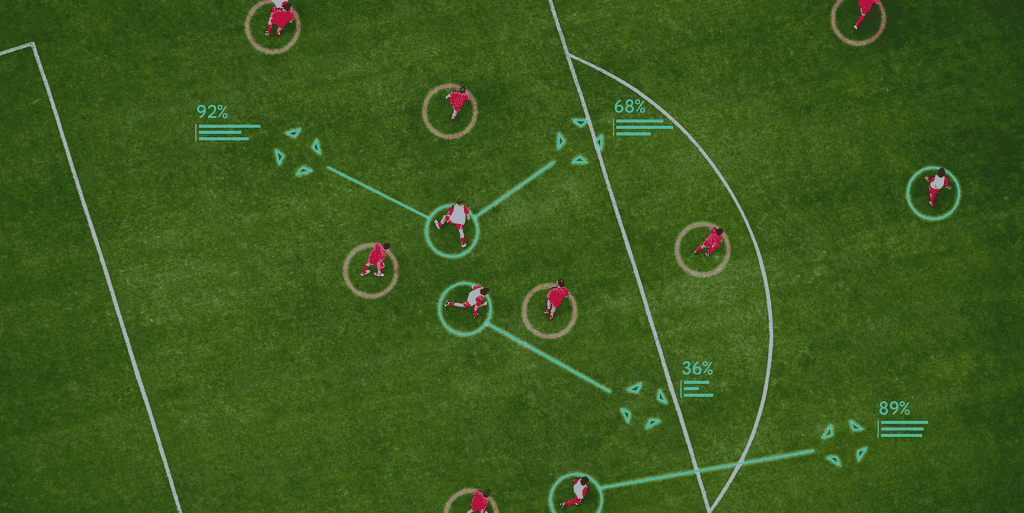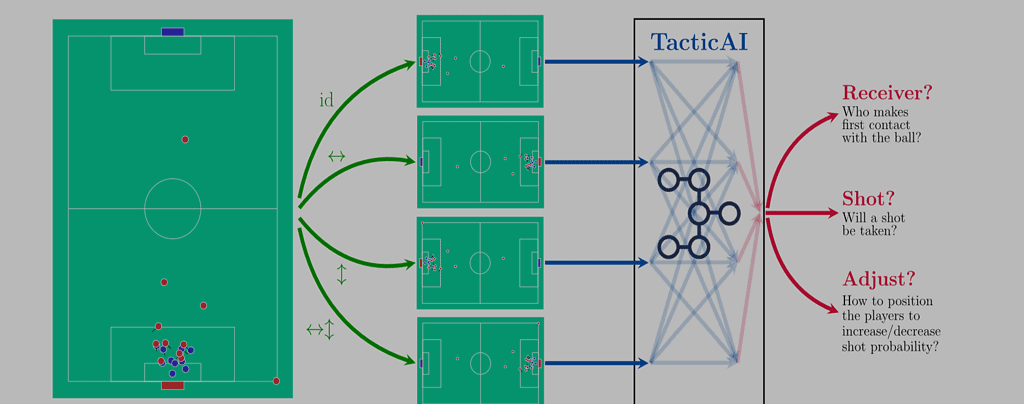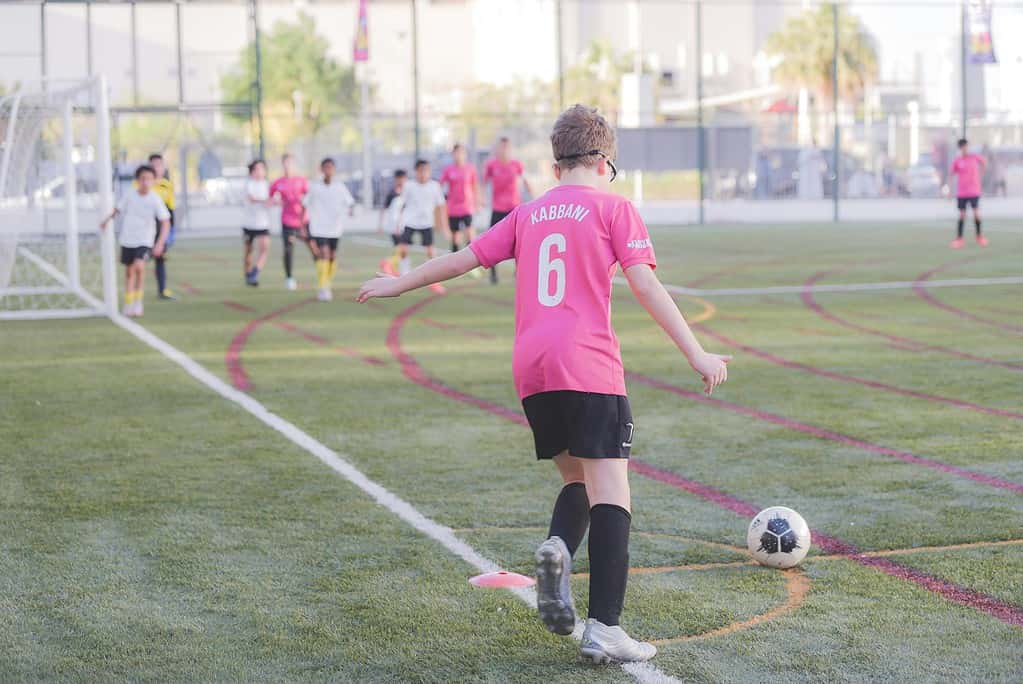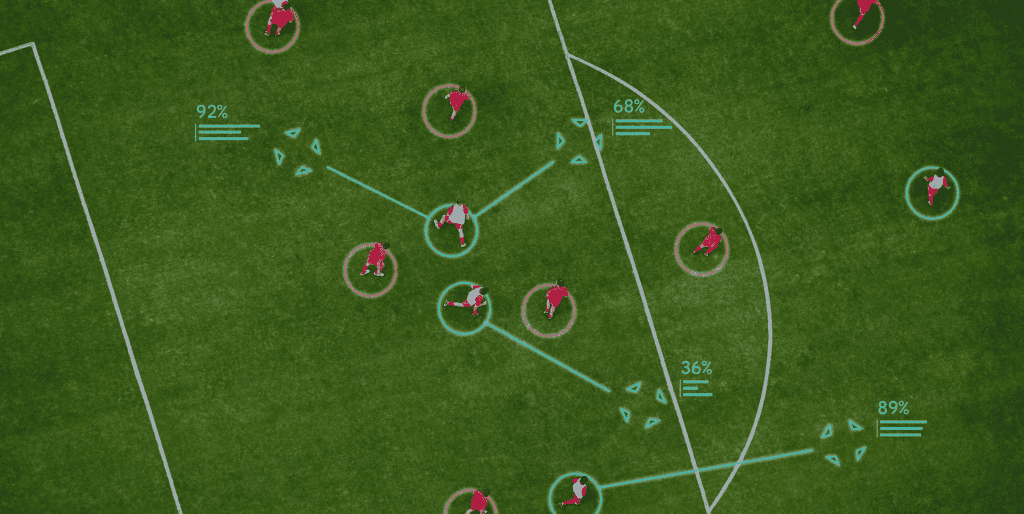Football, also known as soccer in some places, is not just about physical strength but also about intelligence and strategy. The era of sentimental football is over—now, this sport mainly focuses on new strategies and technology, examining data and creating new plans that can beat the opposing team’s setup. This is where TacticAI comes in. According to a new study, the AI can forecast the result of corner kicks and give practical and precise tactical suggestions during soccer matches. football matches.

Technology enters the pitch
The introduction of technology in football, from video assistant referees (VAR) to advanced performance analytics, has transformed the game in numerous ways. However, the potential impact of TacticAI, an innovative tool developed in partnership with specialists from Liverpool Football Club (LFC), may elevate football analysis to the next level.
The AI concentrated on corners because these are perhaps the most structured and strategic aspects of football.
In football, corner kicks are crucial. There are typically 10-14 corner kicks in every game and about 3% of them result in goals. Corners are also intriguing to study because they give coaches one of the most direct chances for intervention and improvement. Corner kick strategies are consistently decided and planned before each game.
Having access to an automated system that can analyze and enhance the likelihood of scoring would be very advantageous for human coaches at all levels.
“Identifying key patterns of tactics implemented by rival teams, and developing effective responses, is at the core of modern football. Yet, doing this algorithmically still presents a research challenge. To address this unmet requirement, we suggest TacticAI, an AI football tactics assistant created and evaluated in close cooperation with domain experts from Liverpool FC,” the research authors state in the study.

Testing tactics
At the heart of TacticAI is a sophisticated AI model that utilizes geometric deep learning, a method that enables the effective processing of data on non-Euclidean spaces, such as graphs and networks. This method is well-suited for football, where the relationships between players, their positions, movements, and the ball can be depicted as a complex web of interactions.
Basically, TacticAI examines data from previous matches, including player positions, speeds, and game results, to forecast which player is most likely to receive the ball from a corner kick and the probability of that kick leading to a shot on target.
The majority of the study authors are from Google’s DeepMind, the research lab that also solved protein structures and created millions of new materials that didn’t previously exist. They utilized a dataset of 7,176 corner kicks from the Premier League, the top English football league. The data was provided by experts from Liverpool Football Club, which was a collaborator in the research.
Next, TacticAI was tasked with producing tactical setups for corners, and Liverpool FC experts were requested to evaluate and analyze these tactical setups. A panel of five Liverpool experts (three data scientists, one video analyst, and one coaching assistant) found the tactics to be authentic and similar to currently devised tactics. Surprisingly, a user survey discovered that TacticAI’s setups were preferred over existing tactics in 90% of instances.
The future of football

This approach is more than just a theoretical exercise. AI is already implemented in football for various purposes, and the study authors are confident that TacticAI (or its subsequent iterations) can make their way into the game.
“The learned representations and overall framing of TacticAI also set the stage for future research to integrate a natural language interface that enables domain-grounded conversations with the assistant, with the goal to retrieve particular situations of interest, make predictions for a given tactical variant, compare and contrast, and guide through an interactive process to derive tactical suggestions. It is thus our belief that TacticAI lays the groundwork for the next-generation AI assistant for football,” the team writes in the study.
What makes TacticAI even more interesting is not just its predictive power but its ability to offer practical, actionable advice to coaches. It doesn’t suggest abstract concepts but instead suggests minor adjustments in player positioning. With professional sports having famously narrow margins of error, being able to significantly increase the chances of scoring from a corner can make a big difference. If the same approach can be applied to different phases of the game, all the better.
Sports is also a very profitable industry that can support AI research. Liverpool FC, for example, is estimated to be valued at over $4 billion, and they’re not even the most valuable team in the Premier League. Undoubtedly, the partnership between AI and sports is sure to be a successful one in the long run.
The study was published in Nature Communications. https://doi.org/10.1038/s41586-024-07145-1
Was this helpful?
Related Posts
- Delaying meals can shift the body clock and alleviate some of that jet lag
- Major oil corporations spent $1 billion on climate lobbying against Paris Agreement-related regulations
- New design hotfix could make artificial leaves better than actual leaves
- Gene editing brings us closer to making lab-grown meat affordable









